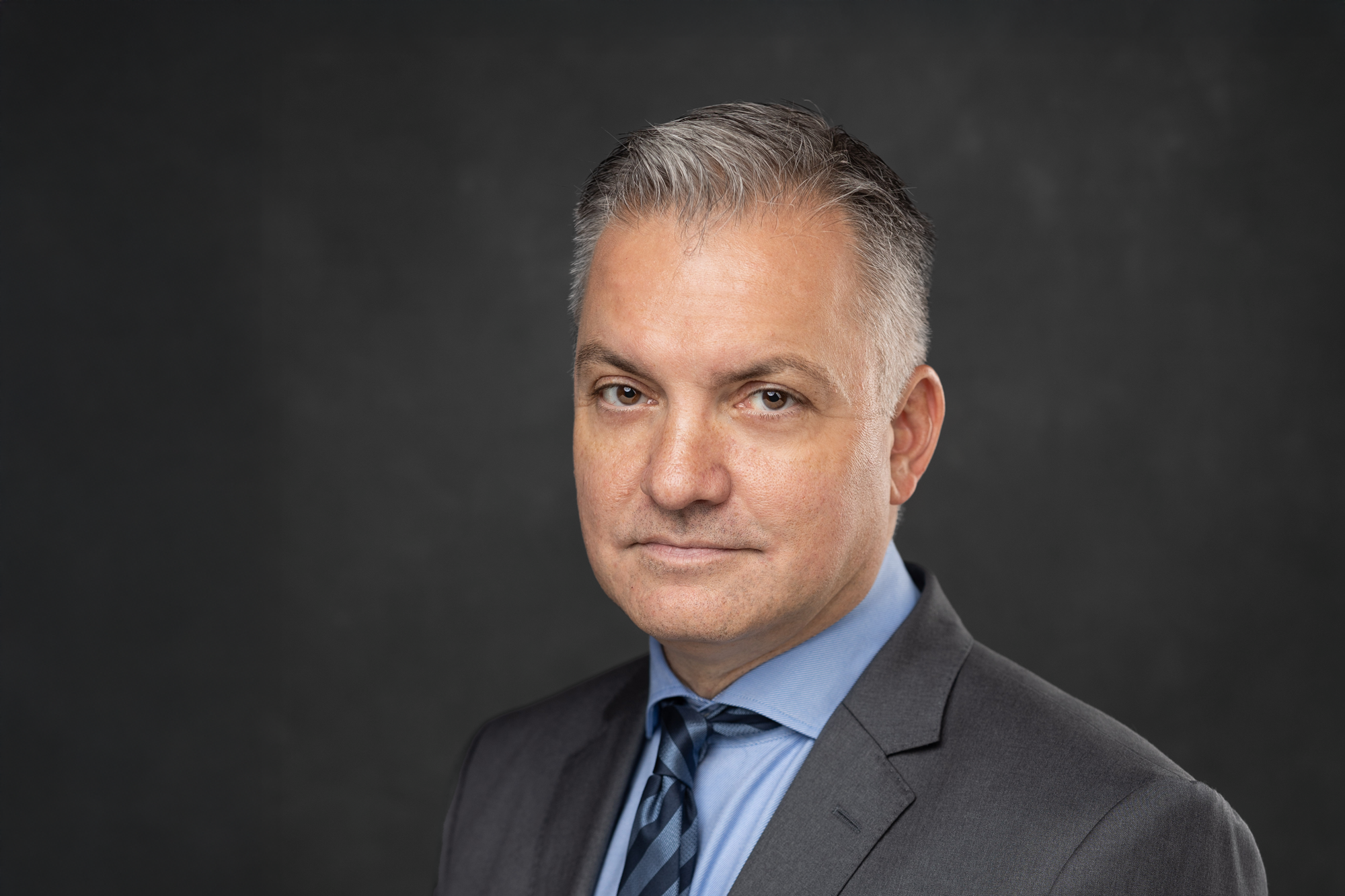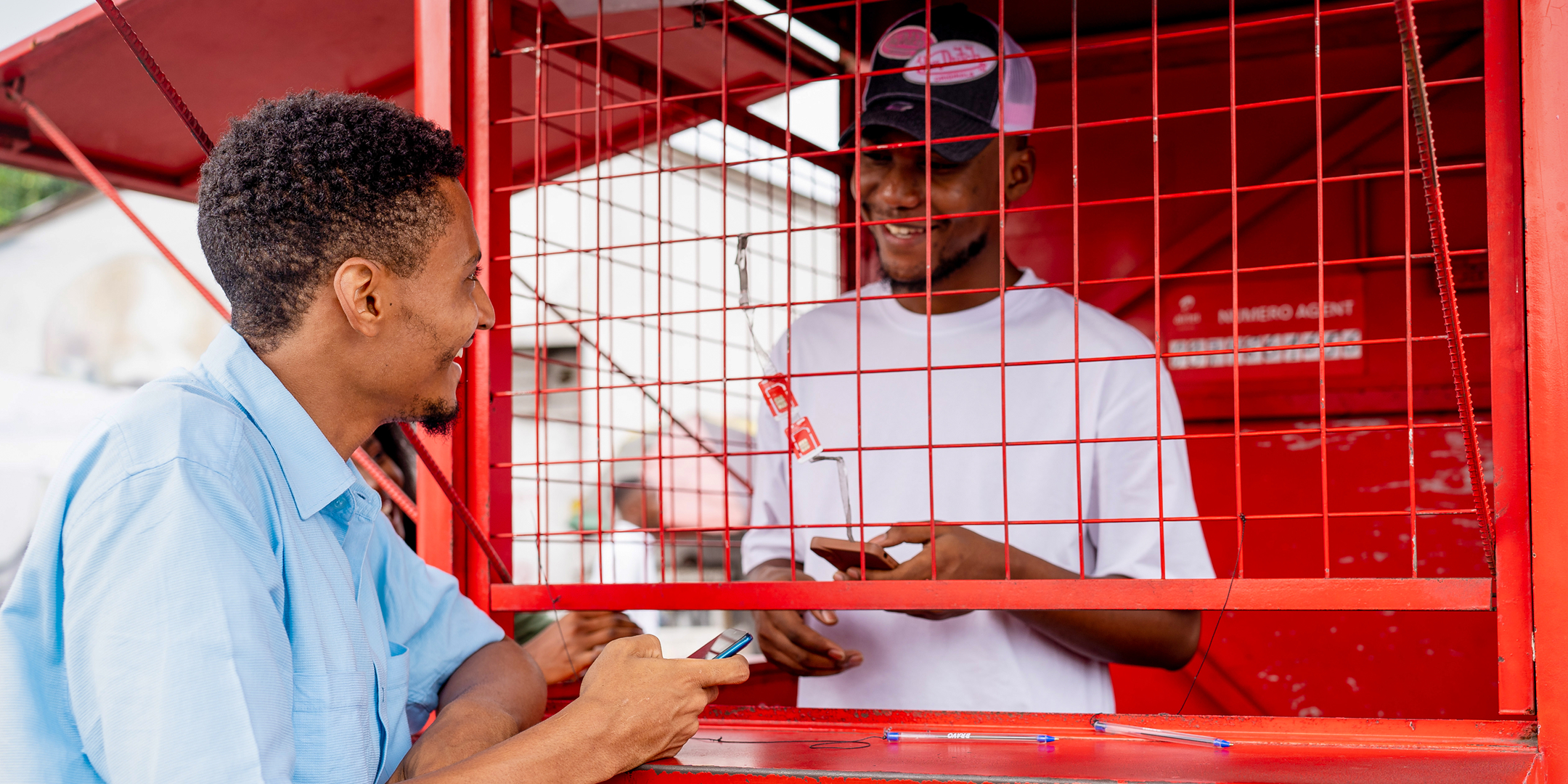Focusing on connections: for customers, communities and our business
Revenue
$1,300m
constant currency 7.9%
reported currency 7.2%
Operating profit
$219m
constant currency (13.3%)
reported currency (14%)
Underlying EBITDA
$505m
constant currency (0.8%)
reported currency (1.5%)
ARPU
$3.2
constant currency (1.8%)
reported currency (2.4%)
Other market participants
Chad: Maroc, Sotel
The DRC: Vodacom, Orange and Africell
Gabon: Moov (Maroc Telecom)
Madagascar: Orange and Telma
Niger: Zamani, Moov (Maroc Telecom), Niger Telecom
Republic of the Congo: MTN, Congo Telecom
The Seychelles: Cable & Wireless and Intelvision

Anwar Soussa
Regional director, Francophone Africa
1
Despite economic, social and political headwinds across most of our Francophone markets, our commitment to expanding digital inclusion has strengthened local economies and transformed millions of lives. With an increased focus on serving rural communities, connectivity and digital inclusion should only accelerate further in the coming years.
2
Revenue ($m)
Growth percentage in constant currency
Underlying EBITDA ($m)
* Underlying EBITDA margin (%)
Revenue split
Summarised statement of operations1
1 The Francophone Africa business region includes Chad, the Democratic Republic of the Congo, Gabon, Madagascar, Niger, Republic of the Congo and the Seychelles. 2 Voice revenue includes inter-segment revenue of $2m in the year ended 31 March 2025 and $3m in the prior period. Excluding inter-segment revenue, voice revenue was $612m in the year ended 31 March 2025 and $619m in the prior period. 3 Other revenue includes inter-segment revenue of $3m in the year ended 31 March 2025 and in the prior period. Excluding inter-segment revenue, other revenue was $117m in the year ended 31 March 2025 and $129m in the prior period. | |||||
|---|---|---|---|---|---|
Description | Unit of measure | Year ended | Reported currency change | Constant currency change | |
Mar-25 | Mar-24 | ||||
Revenue | $m | 1,300 | 1,213 | 7.2% | 7.9% |
Voice revenue2 | $m | 614 | 622 | (1.3%) | (0.6%) |
Data revenue | $m | 566 | 459 | 23.4% | 24.1% |
Other revenue3 | $m | 120 | 132 | (8.9%) | (8.4%) |
Underlying EBITDA | $m | 505 | 512 | (1.5%) | (0.8%) |
Underlying EBITDA margin | % | 38.8% | 42.2% | (342) bps | (341) bps |
Depreciation and amortisation | $m | (231) | (209) | 10.4% | 11.2% |
Operating profit | $m | 219 | 255 | (14.0%) | (13.3%) |
Capex | $m | 159 | 157 | 1.6% | 1.6% |
Operating free cash flow | $m | 346 | 355 | (2.8%) | (1.9%) |
Operating KPIs | |||||
Total customer base | million | 35.2 | 32.3 | 8.8% | |
Data customer base | million | 12.8 | 10.4 | 23.5% | |
Mobile services ARPU | $ | 3.2 | 3.3 | (2.4%) | (1.8%) |
There is a young, data-hungry population of around 200 million people in the seven countries in our Francophone Africa segment, and for the vast majority, mobile services are the first – and often only – way they can access connections to each other and the digital economy. Our smartphone penetration continues to grow, but at 43% is still low by global and African benchmarks, offering a clear opportunity for further expansion – provided we continue to ensure that customer experience remains our focus.
In 2024/25, we grew our customer base and revenues despite the continuing headwinds in several markets, including significant inflation in the DRC, fuel shortages and political disruption. We've met these challenges by reinforcing the resilience of our networks, leaning further into digital solutions in areas such as recharges and apps for our sales teams, and launching new products. We expanded our 4G network, in particular, with 641 new sites across the region reflecting the continued, and still unmet, demand for data. Our fibre network also grew by 244 km and we launched fibre-to-the-home (FTTH) services in our Seychelles market. Meanwhile, enterprise solutions for businesses in the oil and mining sectors who need fast, secure broadband and IT services are building momentum. All this has been supported by continued growth in our distribution infrastructure, with SIM and recharge outlets both expanding significantly.
Our focus on customers is bringing results. In 2024/25 we’ve welcomed 2.4 million new data customers and grown our overall customer base by 8.8%, bringing essential services and digital inclusion to more people and communities than ever.
Revenue grew by 7.2% in reported currency and by 7.9% in constant currency. In Q4’25, constant currency revenue growth accelerated to 12.5% from 8.5% in the prior quarter following a recovery in market trends and the benefits of sustained network investment as well as intensive focus on ‘go-to-market’ initiatives.
Voice revenue declined by 0.6% in constant currency as customer base growth of 8.8% was more than offset by a decline in voice ARPU reflecting interconnect rate reductions and increased competitive intensity during the period.
Data revenue grew by 24.1% in constant currency, supported by customer base growth of 23.5%. Our continued 4G network rollout resulted in an increase in total data usage of 44.2% and per customer data usage growth of 24.3%. Data usage per customer increased to 5.4 GB per month (up from 4.4 GB in the prior period), with smartphone penetration increasing 4.7% to reach 43.1%. Smartphone data usage per customer reached 6.5 GB per month compared to 5.4 GB per month in the prior period.
Underlying EBITDA at $505m declined by 1.5% and 0.8% in reported and constant currency, respectively. The underlying EBITDA margin declined to 38.8%, a decline of 342 basis points, reflecting an increase in fixed frequency fees in one market, rising energy costs combined with revenue growth pressure in some markets. The strong revenue performance in Q4’25 supported an increase in underlying EBITDA margins to 39.8% from 39.2% in Q4’24.
Operating free cash flow of $346m declined by 1.9% in constant currency due to the decline in underlying EBITDA and marginally higher capex.
We operate in an evolving legal and regulatory landscape. Relevant changes in our region this year include:
Mobile termination regulation (MTR)
Republic of the Congo
In October 2023, l‘Agence de régulation des postes et des communications électroniques du Congo Brazzaville (l’ARPCE) extended the asymmetric MTR rate of 7 CFA (Congolese franc) to terminate on Airtel Congo S.A.’s network and 5 CFA to terminate on MTN’s network for a period of 12 months to October 2024. In the meantime, the regulator has commissioned a cost study.
Licences
Chad
With effect from 9 April 2024, Airtel Chad was issued with a renewal of its 2G, 3G, 4G licences as well as the ISP licence. The licences are for a period of ten years at a cost of the CFA 54bn (approximately $89m).
Gabon
On 7 January 2025, Airtel Gabon obtained a global fixed operator authorisation (FTTX licence), granted for a period of ten years at a sum of CFA 3.5bn (approximately $5.8m). The FTTX licence will enable Airtel Gabon to provide high-speed Internet services using fibre to retail customers.
Spectrum
Niger
In July 2024, L'Autorité de Régulation des Communications Électroniques et de la Poste (ARCEP) granted Airtel Niger the opportunity to acquire 20 MHz of spectrum in the 2600 MHz band at an initial fee of $1.32m.
In August 2024, ARCEP granted a 12-month extension of the temporary allocation of 5 MHz in the 1800 band until July 2025. Airtel Niger is pursuing the conversion of this temporary allocation of spectrum into a permanent allocation at the end of the 12 months period.
On 31 October 2024, Airtel Niger received a decision from ARCEP allocating radio frequency for the fixed terrestrial service operating in the 6G Hz band (with a bandwidth of 40 MHz) for voice and data communications. This acquisition will bring additional backbone capacity (from 1.3 Gbps to 7.2 Gbps) and improve quality of service. It can also be used as an alternative to fibre on certain routes. Airtel Niger will be required to pay an annual fee of CFA 66,467,520 (approximately $109,000).
Tax developments
Democratic Republic of the Congo
Based on the Finance Act 2025, mobile telecom operators need to consider the deferred revenue as part of taxable income which will be subject to corporate income tax for the year.
Transforming lives in action
Building 'go-to-market' momentum and meeting demand for data in the DRC
Demand for data in the DRC is growing fast, driven by smartphone adoption and a powerful appetite among customers for digital inclusion. To meet that demand and grow our market share, we’ve focused on excellent execution in every pillar of our strategy – resulting in a 29% growth in our DRC customer base and a 33% growth in our data revenues.
The rapid expansion of our distribution network over recent years has given us momentum. In 2024/25, we focused even more sharply on reaching customers in the ‘last mile’ – providing granular data to sales operatives working in defined sales zones, digitising their processes through our new sales app, and refining our distribution systems so that we can respond at speed.
We’ve enhanced our customers’ digital experience too, with rapid adoption of MyAirtel app and new features such as smart checkout which accelerates and simplifies the customer journey.
And alongside this, we’ve continued to improve network experience, adding 242 new sites, optimising 4G spectrum and deploying more field teams to boost network resilience. Taken together, our strong execution in the DRC has resulted in overall revenue growth of over 14% year on year.




